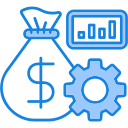How to Create a Personal Budget Plan for Beginners
Creating a personal budget plan can seem overwhelming at first, especially if you are unfamiliar with managing finances. But with the right approach and a clear understanding of your income and expenses, budgeting becomes a powerful tool that can help you take control of your financial future. This guide will break down the process of building a budget into easy steps and provide practical advice to make the journey smoother for beginners. By following this roadmap, you’ll gain confidence in making financial decisions, save more efficiently, and ultimately achieve your money goals.

Identifying All Sources of Income
Before building your budget, you need to determine what money is coming in every month. Income includes more than just your main salary. Part-time jobs, freelance work, tips, and other side hustles can all contribute. It’s important to list out these sources to get a comprehensive picture of your finances. Remember to use your net income (the actual amount after taxes and deductions) because this reflects what’s available for you to distribute among your expenses and savings. If your income varies from month to month, consider averaging the past several months to create a realistic estimate for planning purposes.
Tracking Fixed and Variable Expenses
Expenses come in two forms: fixed and variable. Fixed expenses are those regular, predictable payments such as rent, mortgage, car loans, and insurance premiums that stay the same every month. Variable expenses, however, tend to fluctuate, such as groceries, entertainment, or transportation. Understanding the difference and tracking both categories over the course of at least one month gives you the clarity needed to see where your money goes. Keep your receipts, use mobile apps, or jot down your spending in a notebook. The goal is not to judge yourself but to gather the facts.
Spotting Spending Patterns
Once you have tracked your expenses, you’ll begin to notice patterns. Some may be necessary, like utility bills, while others might reflect impulsive or habitual purchases, such as frequent dining out or shopping. Pay special attention to these habits because they often present the greatest opportunities for improvement. Spotting these trends doesn’t just show you where your money goes—it uncovers areas where you can potentially save or reallocate your resources to match your priorities.
Previous
Next
Setting Realistic Financial Goals
It’s beneficial to distinguish between short-term and long-term financial goals as each has its own approach and urgency. Short-term goals may include saving for a new gadget, paying off a small debt, or setting aside money for a special occasion within the next year. Long-term goals might be buying a home, building retirement savings, or planning for children’s education. Recognizing the difference helps you prioritize and allocate your resources wisely, ensuring you meet immediate needs without neglecting your future.
Choosing the Right Budgeting Method
There are several approaches to structuring a budget, including the envelope system, zero-based budgeting, and the 50/30/20 rule. The best method is the one that you find easy to maintain and understand. Some people prefer detailed, monthly breakdowns, while others may do better setting general percentage rules for spending and saving. You may need to experiment to discover which system helps you keep track of your finances most effectively. Use digital tools, spreadsheets, or even a pen and paper—consistency is what matters most when managing your budget.
Allocating Funds to Different Categories
Once you have picked a budgeting method, allocate your available income to different expense categories and savings targets each month. Ensure the basics—such as rent, groceries, and transportation—are prioritized, followed by payments toward debts and savings goals. If you notice certain categories, such as entertainment or dining out, regularly exceed your estimates, it may indicate a need to adjust either your habits or your budget allocations. Remember, your budget is a flexible tool designed to help you—not a rigid rulebook.
Reviewing and Adjusting Your Budget Regularly
Life changes, and so should your budget. Reviewing your spending and income monthly helps you spot any discrepancies or opportunities for improvement. Sometimes unexpected expenses will pop up, or your income might increase or decrease. Regularly revisiting your budget ensures it remains realistic and effective. Adjust your categories as needed to reflect your current situation and priorities. An up-to-date budget keeps you on course toward your goals and prevents financial surprises.
Join our mailing list
